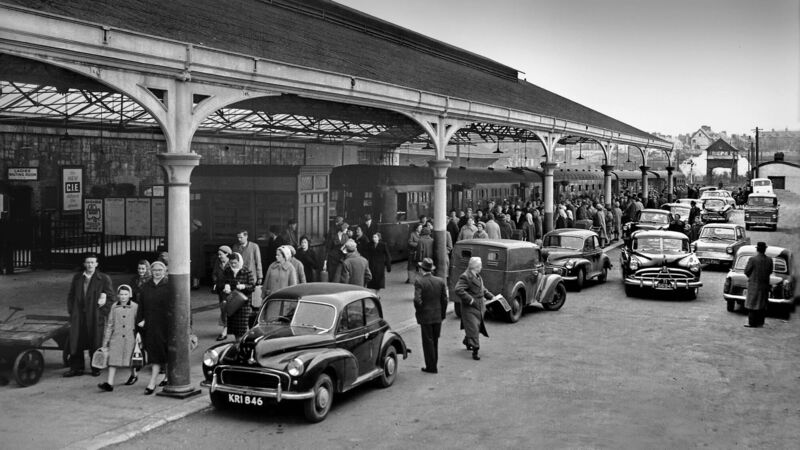Irish Examiner view: Railways could usher in a new golden age

Mick Lynch's grand tour should really have included stops at long-closed stations such as here at Albert Quay in Cork City centre. Picture (1961): Irish Examiner Archive
As a railway worker, the Larkinesque figure of Irishman Mick Lynch will know that timing is all important.
Lynch, arguably the best-known trade union leader in Western Europe, has chosen to retire in 2025 at the age of 63.












